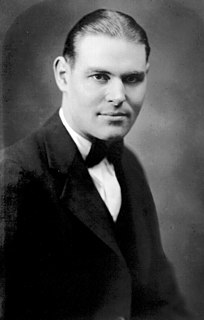A Quote by Stephen Young
Moral capitalism is possible; if not, its strictures are only a kind of misleading vanity, the rhetoric of a secular piety.
Quote Topics
Related Quotes
I think historically modern economics, capitalist economics, tends to erode moral categories... And this is where I think the right gets capitalism wrong. They kind of assume that there is a moral equivalence or moral valence to capitalism, but I tend to think that economics erodes all the kind of cultural taboos and inhibitions and values it comes into contact with.
The moral justification of capitalism does not lie in the altruist claim that it represents the best way to achieve 'the common good.' It is true that capitalism does -- if that catch-phrase has any meaning -- but this is merely a secondary consequence. The moral justification for capitalism lies in the fact that it is the only system consonant with man's rational nature, that it protects man's survival qua man, and that its ruling principle is: justice
Capitalism is the only system that can make freedom, individuality, and the pursuit of values possible in practice. When I say 'capitalism,' I mean a pure, uncontrolled, unregulated laissez-faire capitalism - with a separation of economics, in the same way and for the same reasons as a separation of state and church.
What does this word holiness really mean? Is it a negative kind of piety from which so many people have shied away? No, of course not! Holiness in the Bible means moral wholeness-- a positive quality which actually includes kindness, mercy, purity, moral blamelessness and godliness. It is always to be thought of in a positive, white intensity of degree.
If I were to speak your kind of language, I would say that man's only moral commandment is: Thou shalt think.
But a 'moral commandment' is a contradiction in terms. The moral is the chosen, not the forced; the understood, not the obeyed.
The moral is the rational, and reason accepts no commandments.
We live in capitalism, and capitalism is defined by the production line, and the production line is defined by specificity. If you see yourself as an artist, which I do, then you can't be limited by that. You can't let somebody tell you, 'Well, you can only draw this kind of picture or write that kind of book.'

































